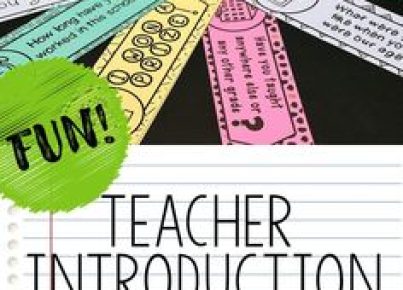Introduction:
As students, it’s essential to take short breaks to re-energize and rejuvenate the mind. These brain breaks are especially crucial during long study sessions or intensive classes. We have compiled a list of 52 effective brain breaks that you should definitely try.
1. Deep breathing exercises
2. Five-minute meditation
3. Stretching exercises
4. Quick walk outside
5. Listen to your favorite song
6. Doodle or sketch in a notebook
7. Solve a crossword puzzle or Sudoku
8. Play with a stress ball
9. Engage in adult coloring books
10. Read a short article or blog post
11. Write a haiku or limerick
12. Do a quick workout or yoga routine
13. Watch a funny video online
14. Call or text a friend to chat for five minutes
15. Practice mindfulness by focusing on the present moment
16. Drink water staying hydrated is important for cognitive function!
17. Dance or shake out your muscles to let energy flow through your body.
18. Alternate between sitting and standing while studying.
19. Take power naps if possible, for about 20 minutes.
20.The Pomodoro Technique: Work for 25 minutes, take a break for five minutes.
21.Visualization techniques: Picture yourself doing something enjoyable.
22.Scent therapy: Light an essential oil diffuser.
23.Organize your desk/workspace.
24.Cuddle up with your pet, if you have one.
25.Watch an inspiring TED talk.
26.Try the finger tapping technique on each hand separately.
27.Journal thoughts and feelings for mental clarity.
28.Create positive affirmations and repeat them in your mind.
29.Touch finger to thumb on each hand for an instant focus boost.
30.Make yourself tea, coffee, or another comforting beverage.
31.Listen to a guided relaxation session or nature sounds.
32.Use a calming app like Calm or Headspace.
33.Look at artwork, beautiful scenery, or inspirational quotes.
34.Play a short video game like Tetris or 2048.
35.Take a bubble bath or relaxing shower.
36.Stretch your hands to relieve tension from typing and writing.
37.Stare at one point on the wall for 30 seconds without moving your eyes and let thoughts drift away.
38.Write a short story about another world.
39.Read aloud your favorite poem.
40.Engage in knitting, crocheting, or other craft activities.
41.Do wall push-ups for upper body strength and blood flow.
42.Draw an imaginary maze with your fingers on the center of your palm and follow the lines back and forth with the opposite hand’s finger.
43.Make paper objects like origami cranes or simple airplanes.
44.Treat yourself to a healthy snack during study breaks.
45.Rotate your ankles and wrists to relieve tension in joints and muscles.
46.Maintain a gratitude journal to focus on positive aspects of life daily.
47.Take a mental vacation by unplugging from screens and enjoying personal time alone like reading books or sitting in nature.
48.Try progressive muscle relaxation by tensing up muscle groups in sequence and releasing tension.
49.Perform neck rotations clockwise and counterclockwise to reduce stiffness as you study for long hours
50.Roll your eyes clockwise/counterclockwise while closing your eyes for better focus
51.Try diaphragmatic breathing that helps in calming the mind
52.Practice some vocal warm-ups (e.g., singing scales or hum)
Conclusion:
Implementing brain breaks into a daily routine can not only improve mental health but also enhance academic performance. By taking short breaks, students can reap the benefits of reduced stress and improved focus.





